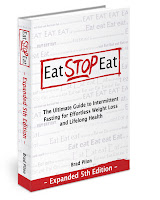 |
| You are overweight because you eat like crap! |
This is where things get interesting. There is a metabolic process called TEF or the thermal effect of food. The actual act of eating and the digestion associated with it burns calories, albeit an extremely small amount. TEF has been used as an argument to support 6 small meals a day and other dietary recommendations that really make no sense. If you eat 2000 calories in one massive meal or split it up into 100 meals of 20 calories each throughout the day it does not matter. The higher the protein level of those calories, the higher the TEF but that is getting too far into it for this answer that is supposed to be short and sweet. In the end TEF will be responsible for burning the same amount of calories, regardless of when or how often you eat."Our metabolism, or more correctly our metabolic rate, is based on the energetic costs of keeping the cells in our bodies alive. For example, let’s say we put you in a fancy lab and measured the amount of calories you burned in one day sitting on a couch doing nothing. Let’s assume that number was 2,000 calories. This would be called your basal metabolic rate; 2,000 calories would be the amount of calories you need to eat to match the amount you burn simply being you. Now, let’s say you moved around that day, perhaps 30 minutes of walking. You might burn an extra 100 calories bringing your daily total number of calories burned up to 2,100. Your basal metabolic rate is always 2,000, and then any extra energy you expend moving your body (such as when we exercise) is added to that number. So in this example, you are going to burn 2,000 calories per day no matter what you do. So why are we being told that our metabolism will slow down if we do not eat for an extended period of time?"
The easiest way to do this is to quote directly from Eat Stop Eat. Brad Pilon explains the scientific studies extremely well. They are linked at the end of the explanation for your viewing pleasure.
In a study conducted at the University of Nottingham (Nottingham, England), researchers found that when they made 29 men and women fast for 3 days, their metabolic rate did not change.This is 72 hours without food. So much for needing to eat every three hours! (study)In another study performed at the Pennington Biomedical Research Center, men and women who fasted every other day for a period of 22 days experienced no decrease in their resting metabolic rate.(study)
In addition, a study published in 1999 found that people who were on very low calorie diets and on a resistance exercise program (i.e. lifting weights) did not see a decrease in resting metabolic rate, and these people were only eating 800 Calories a day for 12 weeks! (study)In another interesting study published in the aptly-named journal ‘Obesity Research’, women who ate half the amount of food that they normally eat for three days saw no change in their metabolism, either. (study)
In still more studies, performed on men and women between the ages of 25 and 65, there was no change in the metabolic rate of people who skipped breakfast, or people who ate two meals a day compared to seven meals per day. (study 1) (study 2)
The answer to the question posted is a resounding NOOOO. As you can see, your metabolism is not really effected by food. What it is linked to is your Lean Body Mass (LBM). Your LBM is everything that makes up your body, minus the fat. The more lean mass you have the higher your metabolism will be. The less you have, the lower your metabolism is. Food intake has little to no effect on your metabolism at all. Hope this provides a relatively quick answer to the question I posted.In a study published in 2007, ten lean men fasted for 72 hours straight. At the end of their fast their energy expenditure was measured and found to be unchanged from the measurements that were taken at the beginning of the study - Yet another example showing that fasting does not decrease or slow one’s metabolism. (study)
More Links:
Fitocracy Intermittent Fasting Questions Answered
